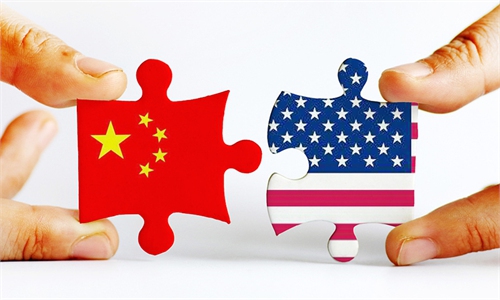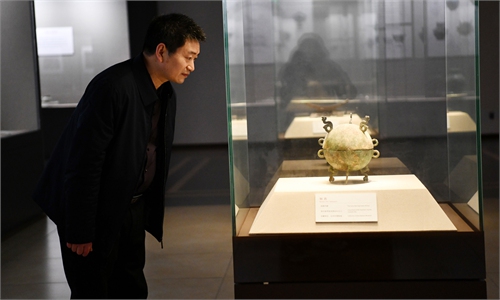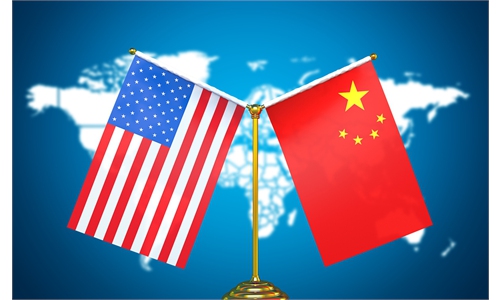China, US hold ‘pragmatic’ financial talks at start of 2024, stabilizing expectations for businesses, world
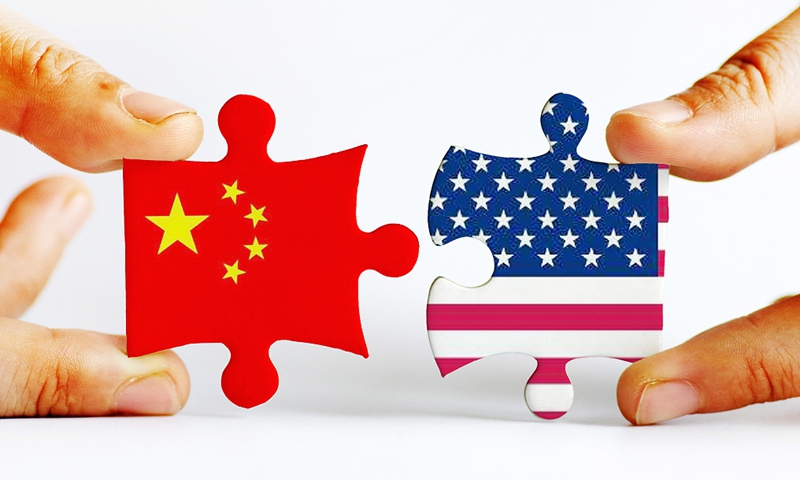
China US Photo:VCG
China-US exchanges in financial and economic fields got off to a good start in the new year, with the world's two largest economies signaling a deepening of engagement in various fields from financial stability to trade policies in the first month of 2024.
The interactions are what the Chinese and US societies as well as the international community are hoping for amid complex regional conflicts, Chinese observers said, calling on the two governments to encourage and nurture that momentum, and thus bring stability and offer businesses stable expectations for the year ahead.
Moreover, observers also pointed out that as Chinese officials and diplomats have consistently emphasized peaceful coexistence and win-win cooperation in developing bilateral ties, the US needs to meet China halfway, rebuild basic political mutual trust, and not categorize China as a "threat" and intensify sanctions against it.
More exchanges
China and the US held the third meeting of the Financial Working Group from Thursday to Friday in Beijing, the first meeting of the working group in 2024, and its first face-to-face meeting held in China.
The two engaged in professional, pragmatic, candid, and constructive discussions on issues related to the stability of the two countries' currencies and finance, financial regulation, financial markets, cross-border payments and data, sustainable finance, anti-money laundering and counter-terrorism financing, global financial governance, and other key issues of common concerns, according to a statement on the official website of China's central bank.
The meeting was co-chaired by Xuan Changneng, Deputy Governor of the People's Bank of China (PBC) and US Treasury Assistant Secretary for International Finance Brent Neiman. Pan Gongsheng, governor of the PBC also attended the meeting.
The two sides agreed to continue to maintain communications.
China is willing to work with the US to implement the important consensus reached at the summit in San Francisco between the two leaders, promoting the healthy, stable, sustainable development of bilateral ties, Chinese Vice Premier He Lifeng said while meeting with the US delegation of the China-US financial working group in Beijing on Friday.
Both sides should continue to make good use of the financial working group mechanism, steadily accumulate achievements, and strengthen cooperation in the financial sector, He said.
Communications in economic and trade areas have also been accelerated. On January 11, the Chinese and US commerce chiefs held their first talks in 2024, during which the two ministers had "in-depth and pragmatic" communication on economic and trade issues of concern to each side.
Notably, the two also touched on issues related to the boundaries of national security in the China-US economic and trade sector - a key sector that has presented major barriers in pushing forward bilateral ties.
"At the beginning of 2024, the relationship between China and the US is better than we might have imagined. Firstly, the leaders of the two countries exchanged congratulatory messages for the first time in the new year [to mark the 45th anniversary of the two countries' diplomatic relations]. Secondly, there have been numerous contacts between the two nations. Therefore, in this context, we have reason to believe that there will be signs of a phased recovery in the overall situation of China-US relations in 2024," Wang Wen, professor and executive dean of the Chongyang Institute for Financial Studies at Renmin University of China, told a forum held in Beijing on Friday.
Observers noted that the series of engagements signal that both nations are striving to stabilize relations despite tensions and challenges becoming "inevitable" in bilateral ties. The trend will inject stability into a world grappling with regional conflicts.
The world has witnessed numerous major regional conflicts over the past year. However, as long as both China and the US remain stable, the world is less likely to descend into chaos. As long as China and the US actively seek cooperation, the world can avoid deteriorating into undesirable situations, Wang Wen said.
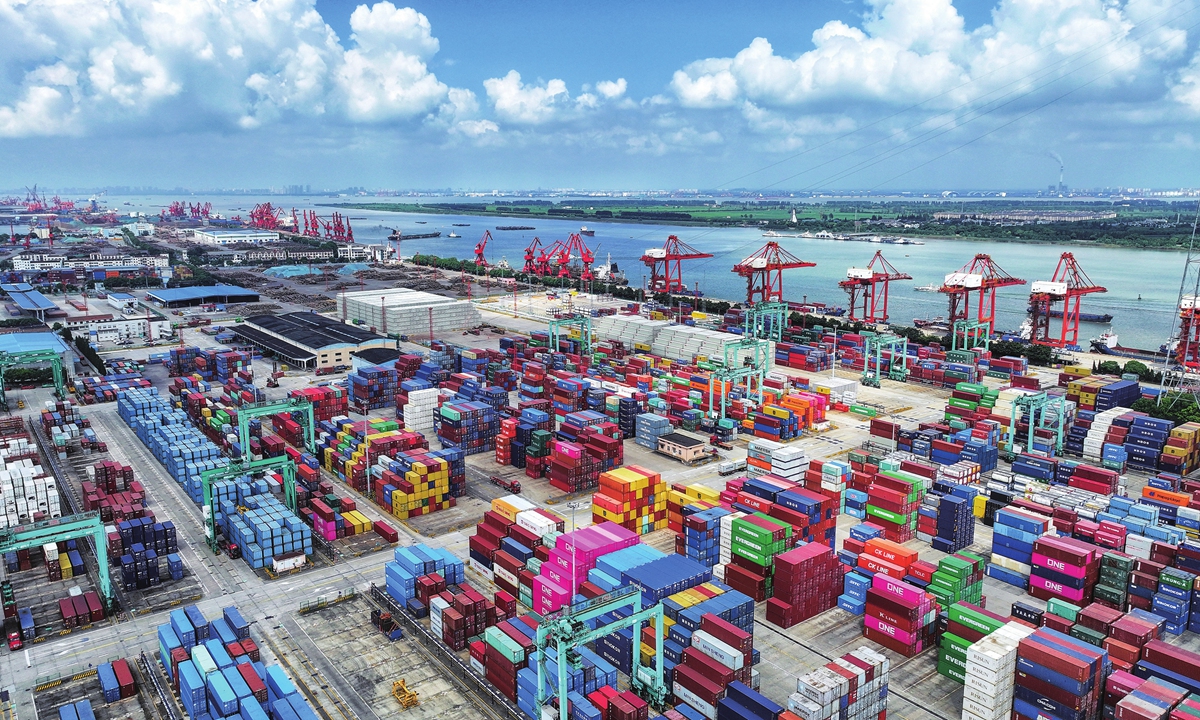
Vehicles and ships busily load and unload shipments in the Zhangjiagang Port, East China's Jiangsu Province on September 6, 2023. Photo: cnsphoto
Stability for businesses, world
In 2024, the Chinese Ministry of Commerce will earnestly implement the important consensus reached by the two heads of state, strengthen dialogue and manage differences with the US on the basis of mutual respect, peaceful coexistence, and win-win cooperation, Chinese commerce minister Wang Wentao said at the Lunar New Year of the Dragon Gala held by the China General Chamber of Commerce - USA in New York by video on Thursday.
Efforts will be made to provide stable expectations for enterprises of both countries and create favorable conditions for economic and trade exchanges and cooperation at all levels. China will expand its high-level opening-up, continuously optimize the business environment, and work toward addressing the legitimate concerns of enterprises, Wang said.
Xie Feng, Chinese Ambassador to the US, also met with Suzanne Clark, the president and chief executive officer of the US Chamber of Commerce on Wednesday, during which the two sides engaged in in-depth discussions on enhancing China-US economic and trade cooperation, among other topics, according to a statement on the official website of the Chinese Embassy to the US.
"These are targeted, strong signals to US and Chinese business communities amid uncertainties and shaky expectations - China will stay committed to opening-up and welcome foreign businesses, including those from the US," Gao said, noting that the remarks will bolster confidence amid tensions.
However, analysts noted that since China has showed its sincerity and stance, an improvement in ties depends on whether the US can meet China halfway, and not continue its sanctions on Chinese companies and impede on normal trade cooperation through hyping of the so-called "China threat."
In other words, the US has not given "equal treatment" to Chinese firms in the US as China has done for US companies in China, observers said.
Moreover, on some core issues concerning China, such as the US' punitive tariffs on Chinese products, as well as its restrictions on Chinese companies, Washington has so far made no pragmatic moves on the matter, Gao said.
Trade between China and the US recorded a slump of 11.6 percent year-on-year in US dollar terms in 2023, Chinese customs said on January 12, a result largely due to declines in global demand and US export sanctions continuing to impede US firms' exports to China.
On Wednesday, US lawmakers called for the passage of bipartisan legislation that would restrict American investment in Chinese high-tech industries, a move that experts said shows the "unwavering" US intention to decouple from China and restrict China's technological advances.
"We need to remain calm, rational, objective, and confident on the matter," Wang Wen said.
Wang Wen noted that the process of China's technological development in the past has been, in many aspects, a journey of facing blockades and suppression from powerful nations and overcoming such challenges. "Therefore, I can confidently say that the more they suppress us, the stronger we become. The greater the pressure and blockade, the more it encourages our researchers to resist such suppression and bring forth more technological support."
With the rise of the nation's strength, Wang Wen noted that it is the US following China's pace rather than us dancing to the tune of the US, as we did in the past.
